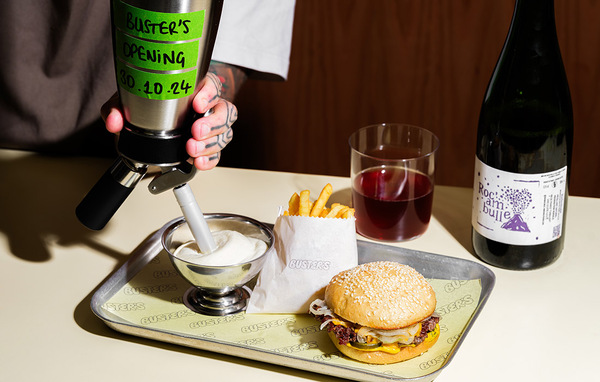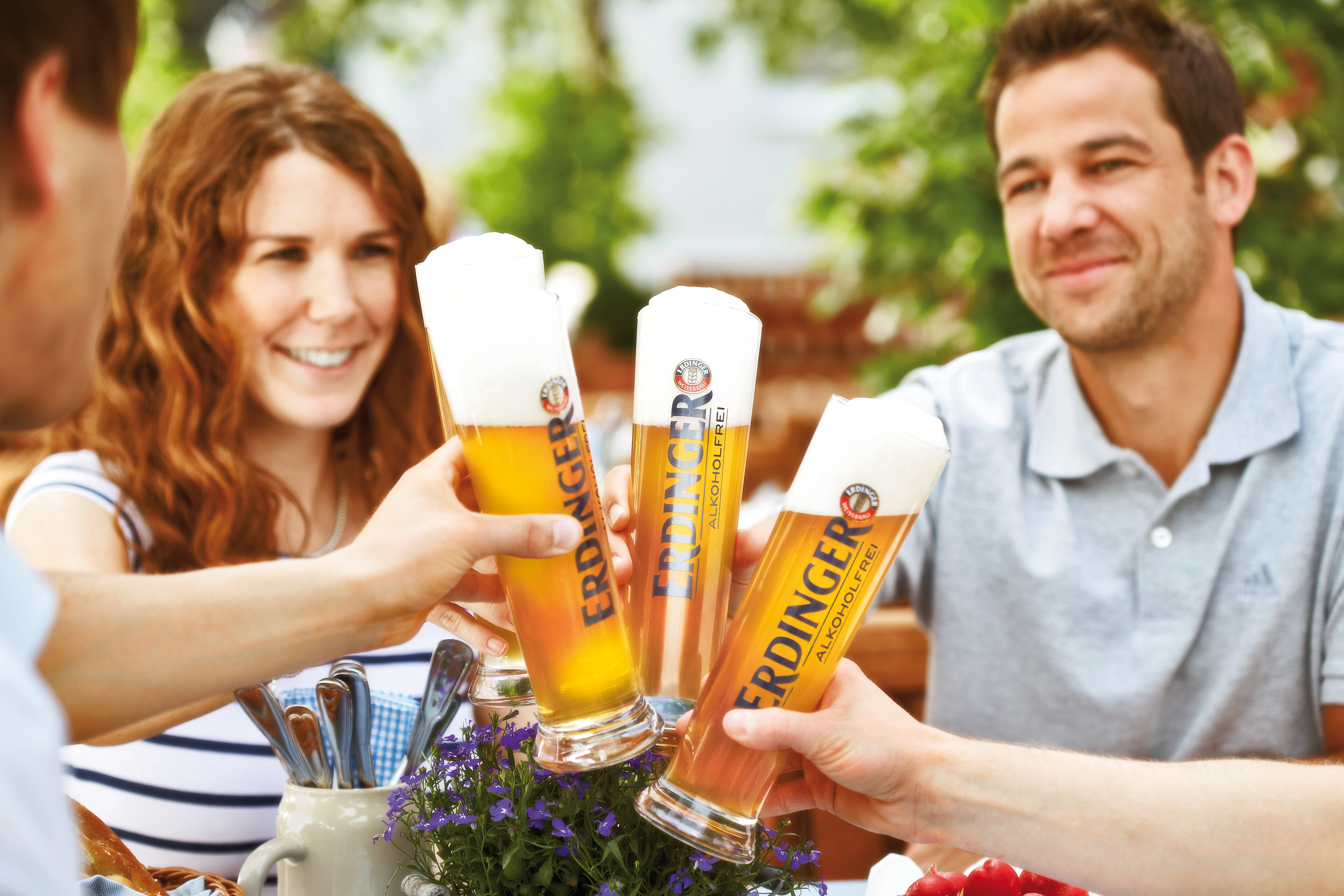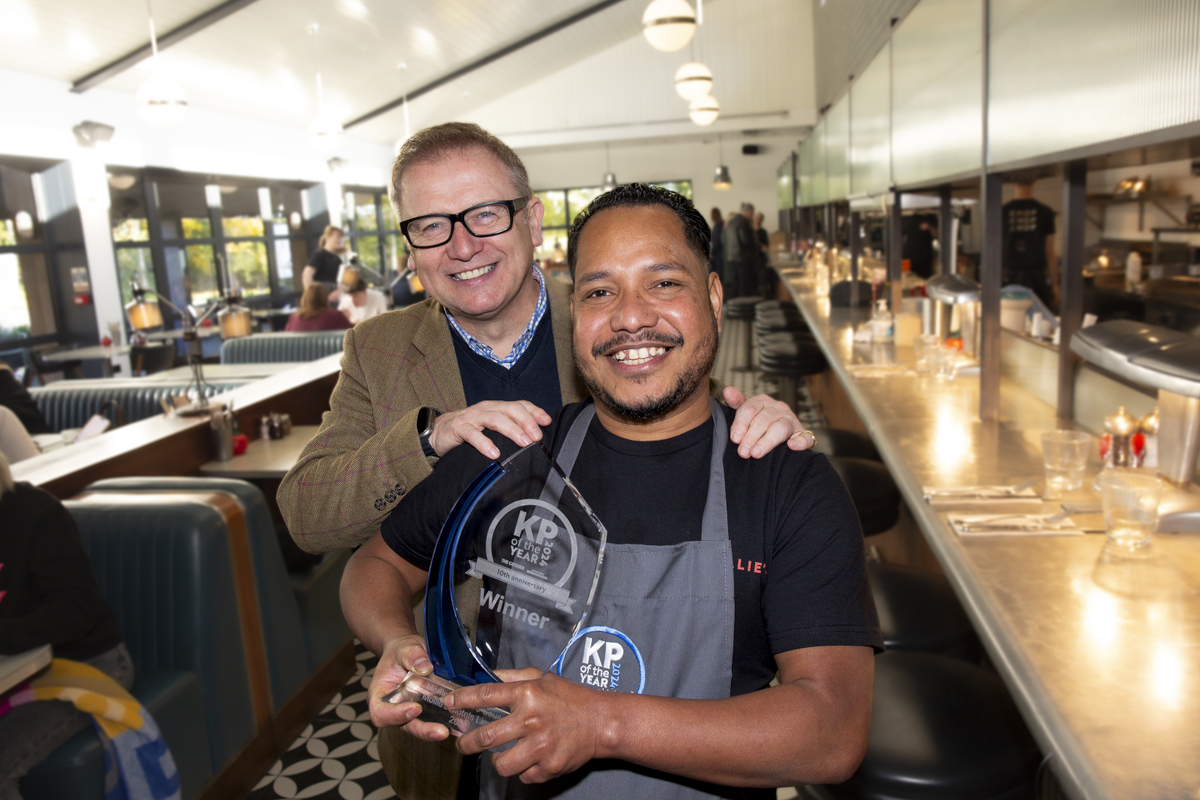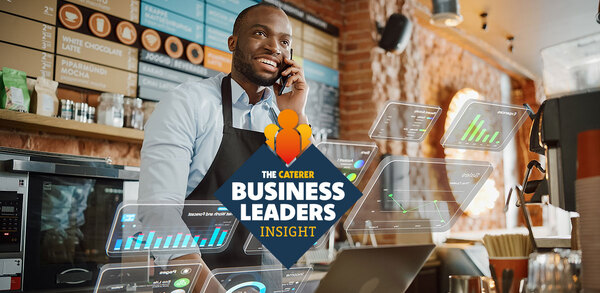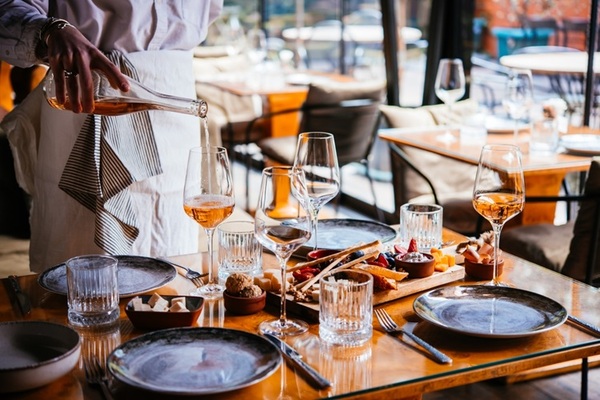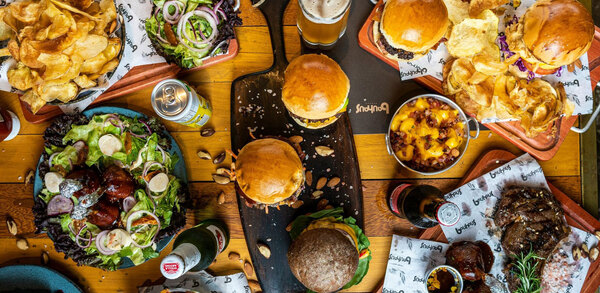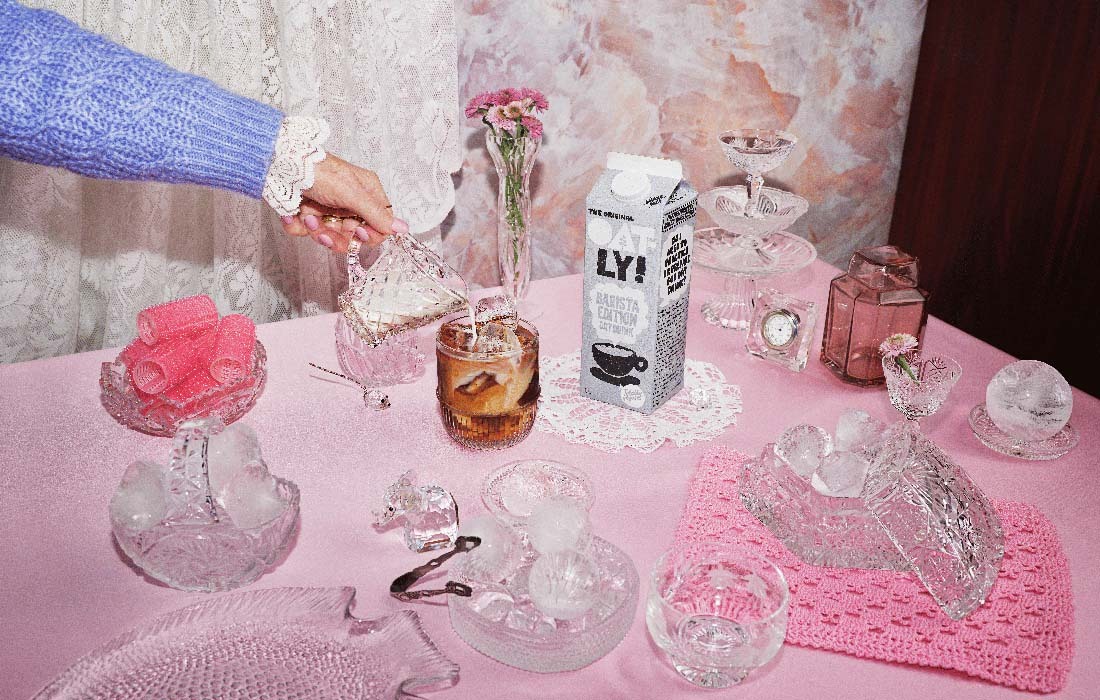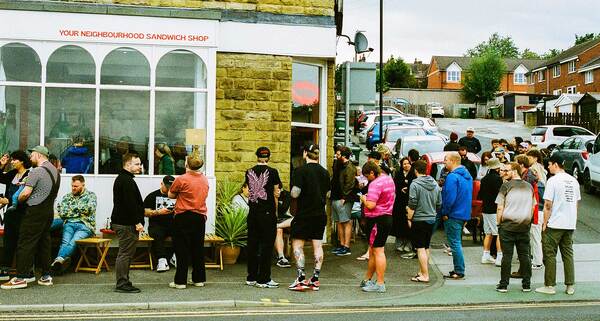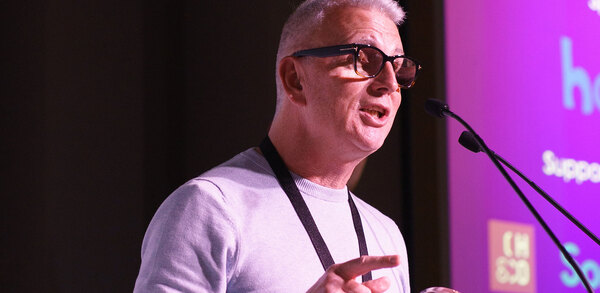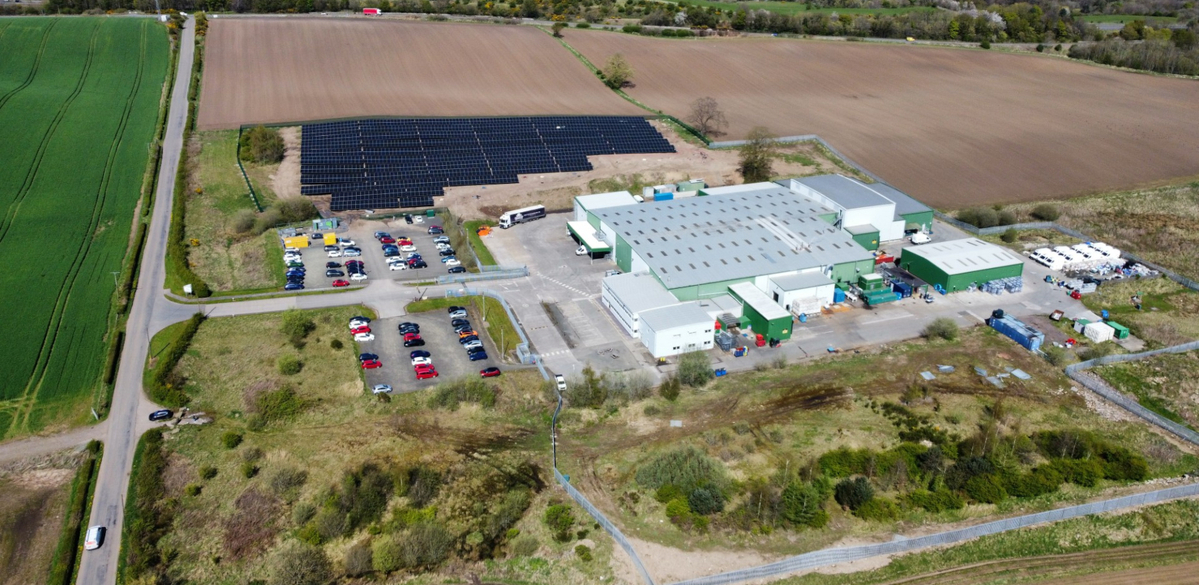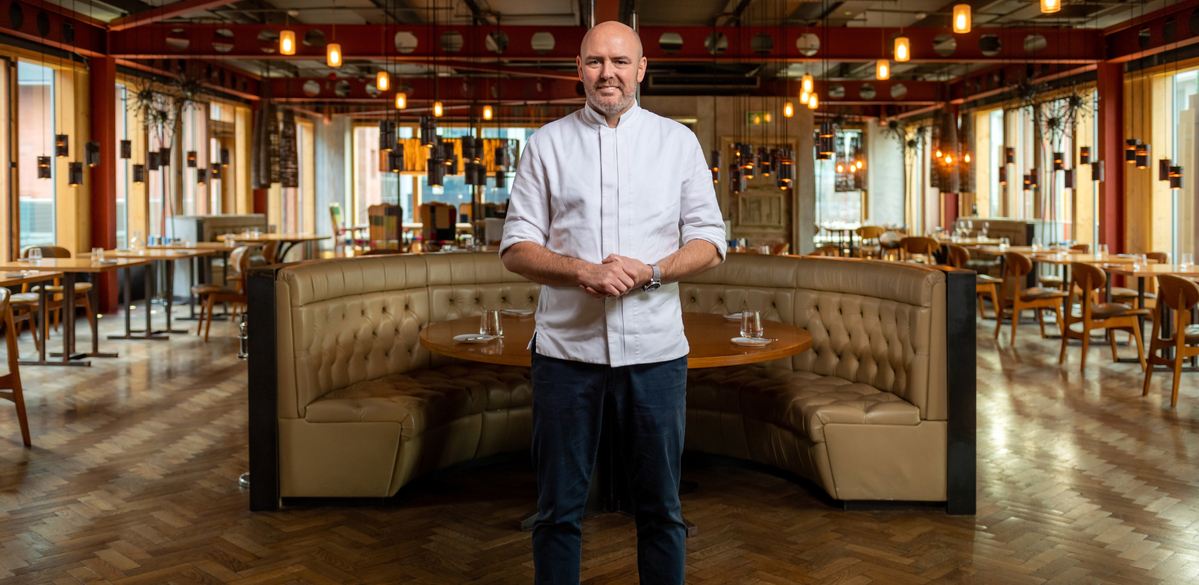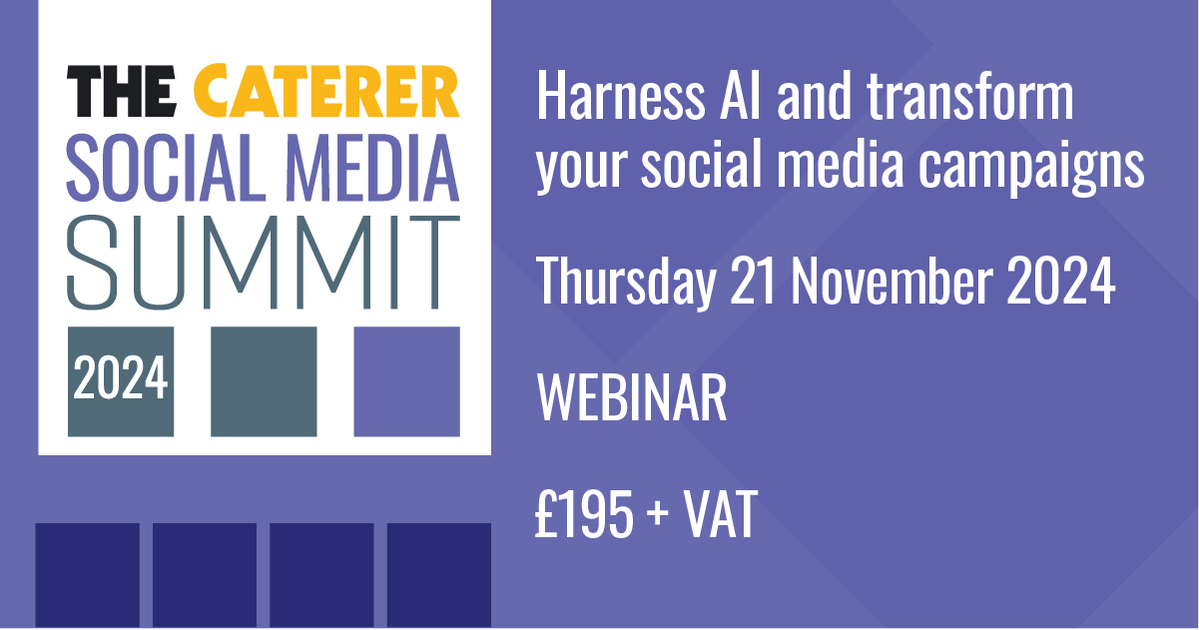Low- and no-alcohol drinks that are as good as the real thing
Low-alcohol isn’t just a post-Christmas penance, it’s a way of life for the modern drinker. John Porter rounds up the latest low- and no-alcohol beverages that are just as good as the real thing
As the perennially quiet January trading period crawls towards its conclusion, operators will, as always, be hoping for a return to a more indulgent approach to eating and drinking by customers.
However, one change in consumer habits now seems to be a year-round factor. The low- and no-alcohol drinks category, encompassing everything from low-alcohol formulations of familiar brands to innovations such as kombucha, is booming. CGA reported in November 2019 that on-trade sales in the no- and low-alcohol category have increased by 48% year-on-year to more than £60m.
While that is still a small part of an on-trade drinks market valued by CGA at £30.8b, the trajectory is clear. In the previous six months, 32% of adults had tried a no- or low-alcohol drink, but only 9% of those who drink these options classify themselves as teetotal, suggesting a trend that is about moderation rather than abstention.
The change also crosses age demographics. Research for independent alcohol education charity Drinkaware shows that 66% of midlife drinkers (aged 45 to 64), have either drunk, or would try, lower-strength alcoholic drinks. This is an increase of 15% in just two years.
For operators across the hospitality sector, this throws down a gauntlet. At the start of January, Brewdog opened its first alcohol-free bar in Shoreditch, while the Bar 6 Group launched a non-alcoholic range at its Near & Far sites in Peckham and Camden. Its selection includes mocktails alongside non-alcoholic beers and wines, as well as brunch options with gluten-free, vegan and veggie choices.
Bar 6 creative director Sarah Holgate said the aim is “to allow customers of all types to enjoy our bar spaces and we think we’ve hopefully nailed it”. Meanwhile, Jockey Club Catering has developed a ‘Free Spirits’ menu that is rolling out to racecourses this year, including 0% beers and mocktails, as well as low-alcohol serves such as spritzes.
Amanda Mason, marketing manager, said the offer appeals to guests attending all-day events, while “the quality of production and mixes available of low- and no-ABV drinks has changed opinions of what a ‘mocktail’ can be. The likes of Seedlip, which we introduced to our menus last year, appealed to the masses and set a standard that will continue to grow and innovate.”
Soft focus
Consumers’ enthusiastic take-up of the category has prompted not only interest but also investment from the bigger drinks players. Diageo acquired a majority stake in non-alcoholic spirits brand Seedlip in August 2019. The drinks giant has also launched products, such as Gordon’s ultra low alcohol gin and tonic flavoured drink, aiming to address what Sophie Partridge, head of on-trade category development at Diageo GB, describes as “poor breadth of choice” in the low and no category.
“These products not only offer consumers low and no alcohol options that don’t compromise on flavour, but they also ensure that nights out remain an occasion to look forward to,” she says.
Amy Burgess, senior trade communications manager at Coca-Cola European Partners (CCEP), says: “Mocktails are also becoming an increasingly popular non-alcoholic option as people look for more indulgent and exciting soft drink options. They represent a significant opportunity for restaurants and bars.” She adds that “venues can get inventive with mocktails by making the most of exotic flavours from the Coca-Cola Signature Mixers range, such as Appletiser and Schweppes Signature Mixers, to keep their offering fresh and exciting.”
Kamila Sitwell, founder of alcohol-free cocktail brand Kolibri, believes that it’s important that operators and brand owners understand the motivation of the consumers exploring these new drink choices. “The no- and low-alcohol category must not beviewed as a substitute for consumers’ usual tipple, and yet it’s categorically not a soft drink either. It’s an upgrade to a better, aspirational lifestyle, where claims such as organic or healthy are insufficient.”
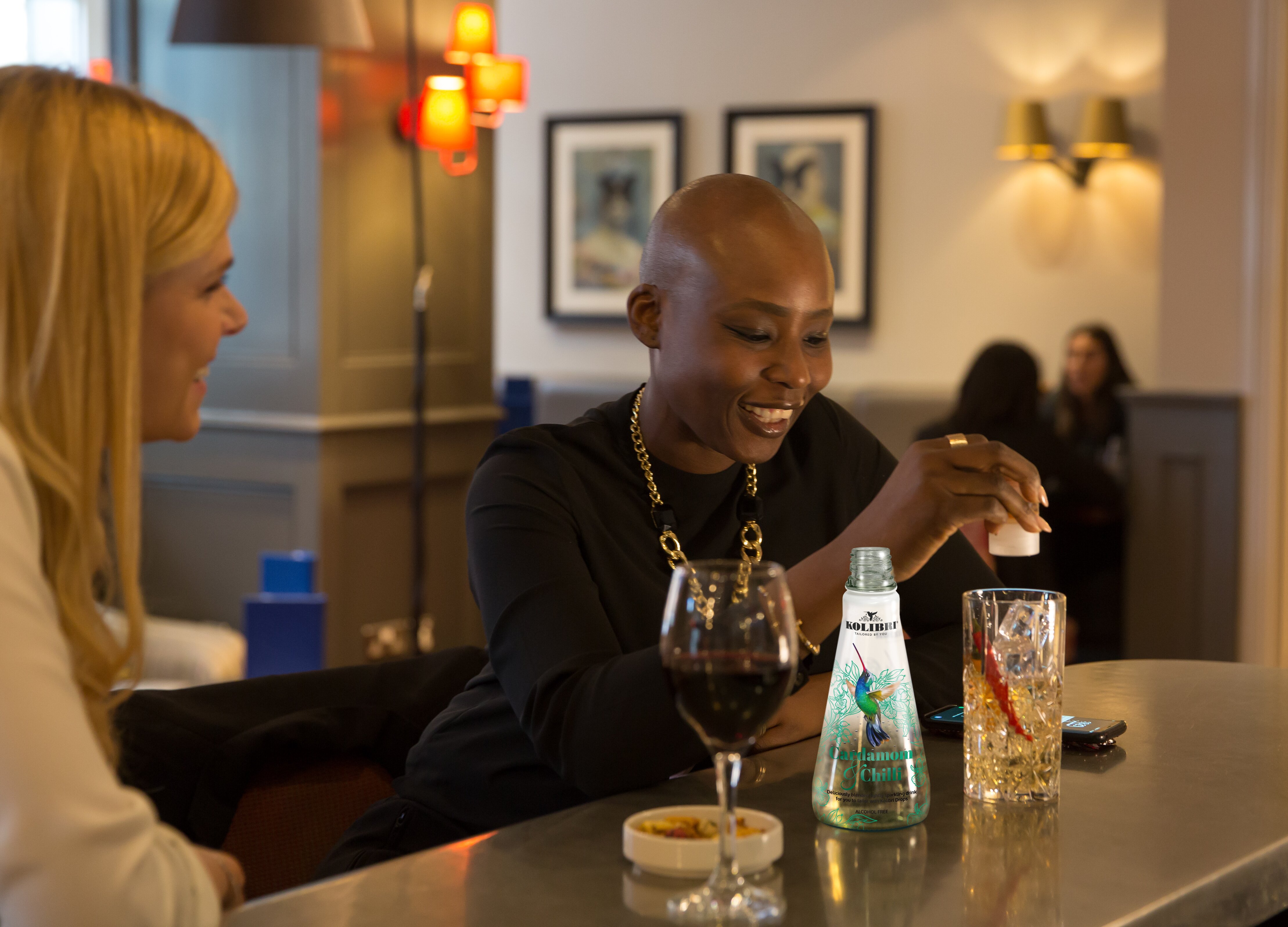
She argues that ‘wellness’ is an important motivator, going beyond the ‘healthier’ credentials espoused by many soft drinks. “It’s all about the experience – a promise of an exquisite, multisensory moment that brings together complex taste, elaborate serves, disruptive packaging and functional benefits. It is so much more than just going sober.” Sitwell forecasts that: “This year will see consumers striving for experience and entertainment, for which they will be willing to pay a premium.”
The beer category has seen some of the most active new product development in the low and no sector. Suffolk brewer Adnams was at industry shows such as Caffe Culture in 2019, promoting the draft keg version of its Ghost Ship 0.5% pale ale, targeting outlets which may not have previously sold beer.
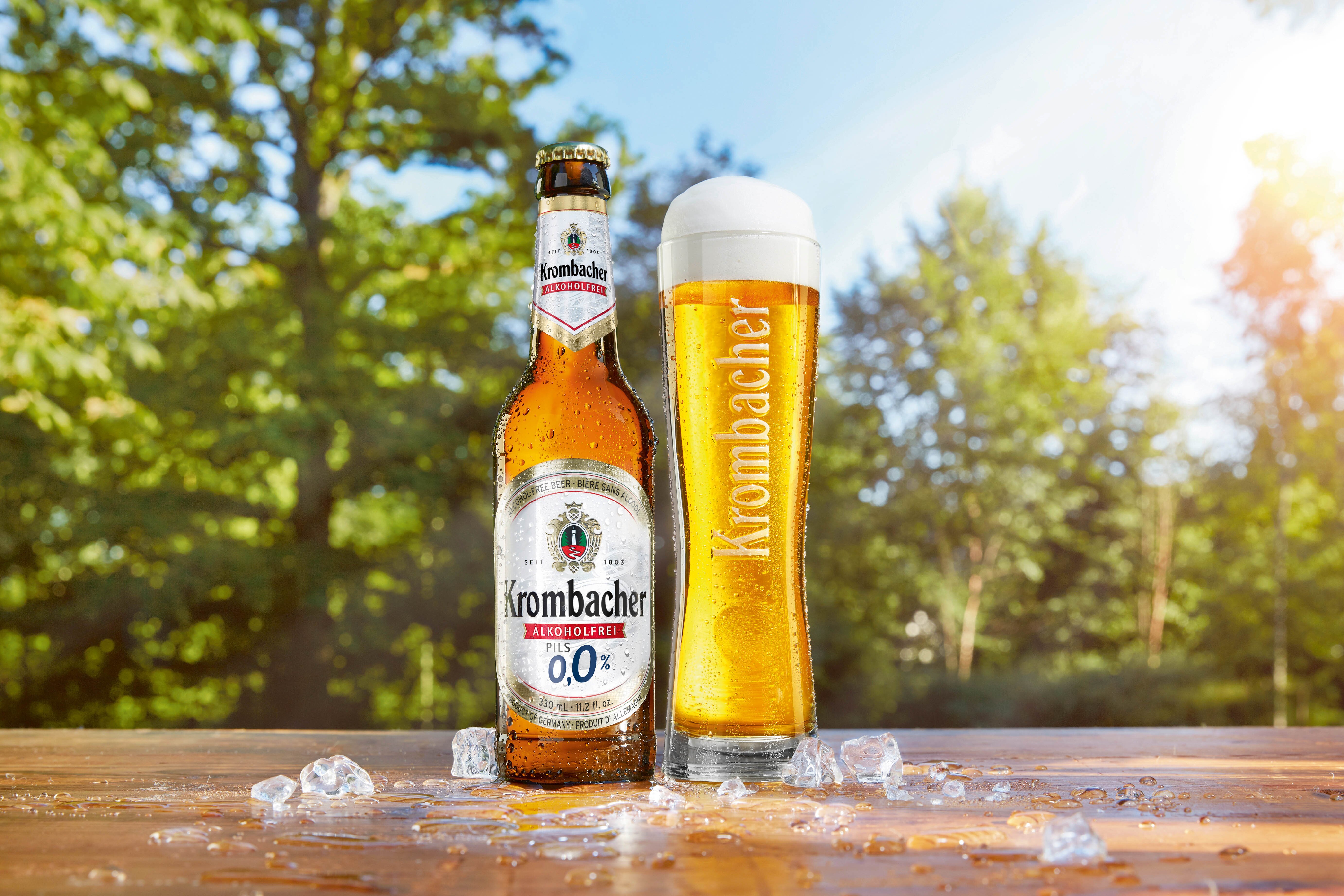
Rob Fink, founder of the alcohol-free Big Drop Brewing Co beer brand, points out that Adnams has the advantage of using its own pubs as a testing ground to assess demand for draught low and no products. “And they tell me it’s flying out,” he says. Big Drop is also promoting the format: “We’re already on draught in a few outlets, such as Brewhouse & Kitchen and Barworks, and we’re putting a lot of effort behind growing draught this year.
“I genuinely think 2020 is the year the ontrade is going to hit the tipping point. By the end of the year we’re going to see alcohol-free beer on draught in many more pubs, and much better representation for low- and no-alcohol craft beer in fridges.”
Cutting edge
Heineken UK, which has added its Heineken 0.0% beer to the options for its Blade portable draught dispense unit, reports that outlets stocking the 0% beer on both Blade and in bottles see an average of 4.5 times more sales than those stocking bottles alone. Stephan Kofler, sales and marketing director for Krombacher UK, believes “there is undoubtedly more interest and demand from a whole range of consumers who are starting to have real confidence in the category, perhaps for the first time. The choice now open to them is as diverse as it has ever been, so the category is incredibly exciting at present.”
Martyn Railton, managing director of distributor Euroboozer, adds: “I think low and no needs to be approached in the same way as full-strength beer, which means stocking just one style and dumping it at the bottom of the fridge isn’t good enough anymore.”
Venues need to offer a few different beer styles and, most importantly, they need to pro mote them, like they would any other drink.
“Staff knowledge is crucial, but menus should showcase what drinks are available. Consumers who are abstaining, are vegan or who have allergies are far more likely to research venues when drinking in the ontrade, so providing clear information online can be a great way of driving bookings and sales.”
Grape taste
In restaurant and hotel venues where wine sales are typically much higher than those of beer, no and low options for the wine list are important to developing the breadth of category. French premium juice specialist Alain Milliat offers a portfolio of grape juices produced from the Sauvignon, Chardonnay, Cabernet, Gamay and Merlot grape varieties, made using wine-making techniques without fermentation. This offers restaurateurs and sommeliers the opportunity to offer no-ABV options when matching drinks to the menu.
Accolade Wines launched Hardys Alcohol Free Chardonnay in 2019, with Paul Holden, category, shopper and insights director for the business, saying the familiarity of the Hardys brand has encouraged consumer trial. “The alcohol-free wine category continues to represent a new profit opportunity for the trade, and Hardys alcohol free is perfect to help capitalise on this trend.
“Its versatility for consumers across multiple occasions has driven sales, as the style satisfies consumers on occasions that they are seeking an alternative to alcohol with its important wine cues, such as grape style and flavour notes.”
Clearly, wine poured from a chilled bottle, draught beer and a freshly made mocktail can all ensure low and no brands deliver memorable serves that help consumers enjoy the out-of-home experience. However, with so many brands competing for a share of the market, Peter Gowans, UK country manager of Erdinger Alkoholfrei, warns: “While consumers are cutting out alcohol units, they aren’t compromising on taste, so only the very best will become established and justify a prime listing. Beverages must taste great in their own right, and not be a pale imitation of a stronger version.”
CGA’s senior consumer research manager Charlie Mitchell agrees: “Producers, operators and suppliers are queuing up to jump on the opportunity with an ever-increasing range of no- and low-alcohol alternatives. With many consumers eager to trial them out of curiosity, along with the evident health drivers associated, the challenge will be to build loyalty and repeat trial in a market where it is increasingly hard to stand out.”
New products
Freestar is a new 0.0% alcohol-free beer which claims to maintain its original flavour by using an alcohol-free production process. Rather than typical fermentation, which removes alcohol from full-strength beer, Freestar blends natural ingredients without yeast. At 62 calories, Freestar is also low in sugar and gluten free.
Thatchers Cider has launched Zero, its first alcohol-free cider. Thatchers Zero has a bright, golden appearance, a crisp, medium-dry taste, and fruity aroma. Crafted using bitter-sweet apple varieties, Thatchers cider makers have developed their own unique process to create Zero.
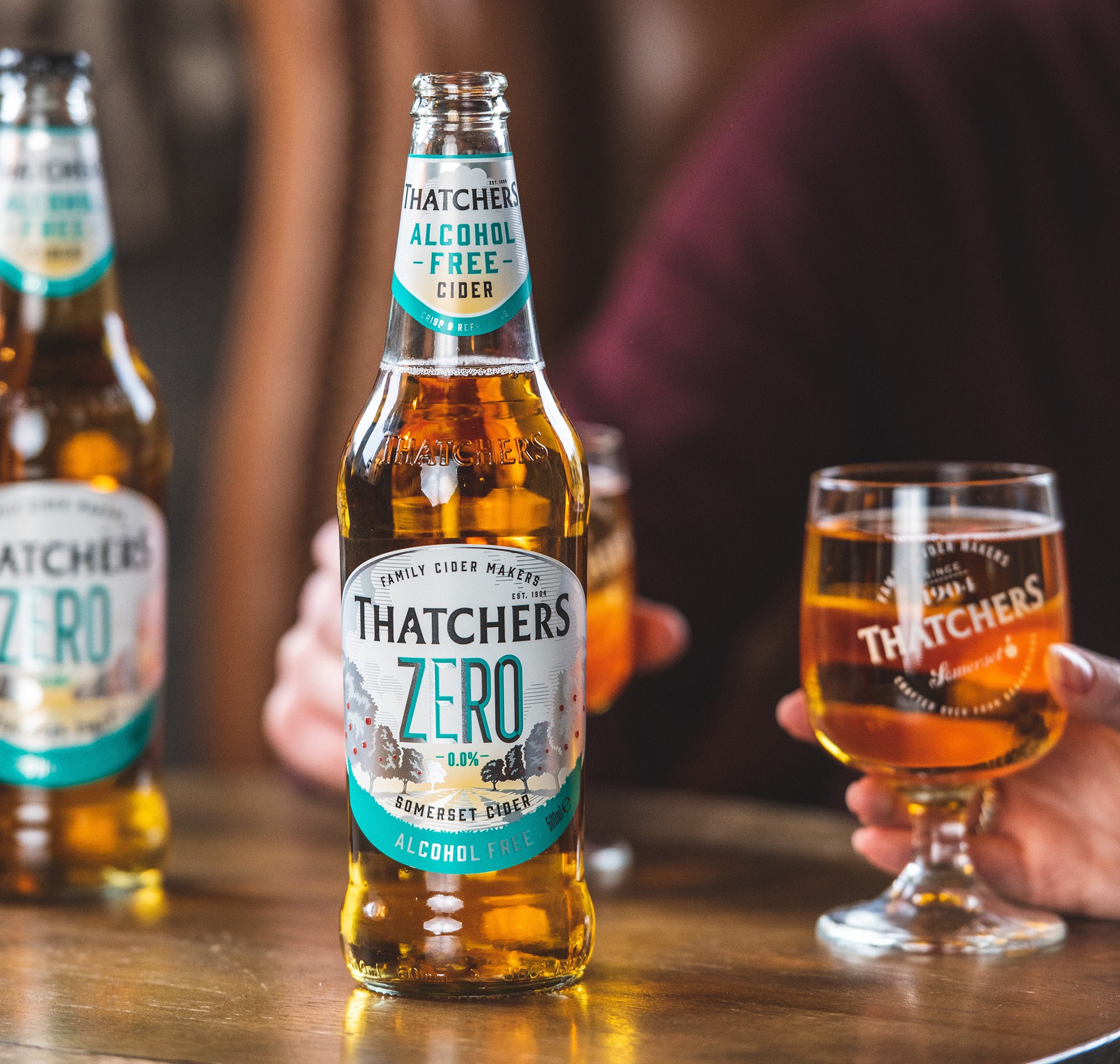
VandeStreek Playground IPA is an amber beer from the Netherlands, brewed with American hops to deliver the citrus and tropical flavours of a modern IPA, as well as bitterness and a strong lasting finish. Available in 33cl cans and bottles from Morgenrot.
Suppliers
- Accolade Wines (Hardys) www.accoladewines.com
- Adnams www.adnams.co.uk
- Alain Milliat www.alain-milliat.com
- Big Drop Brewing www.bigdropbrew.com
- Brewdog www.brewdog.com
- Coca-Cola European Partners www.coca-cola.co.uk
- Diageo (Seedlip/Gordon’s) www.diageo.com
- Erdinger int.erdinger.de/brewery
- Euroboozer www.euroboozer.co.uk
- Freestar www.freestar.co
- Heineken UK www.heineken.co.uk
- Kolibri www.kolibridrinks.co.uk
- Krombacher www.krombacher.com/en
- Morgenrot (VandeStreek Playground IPA) www.morgenrot.co.uk
- Thatchers www.thatcherscider.co.uk


